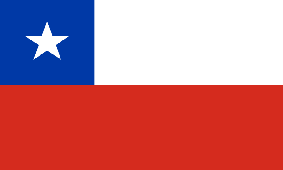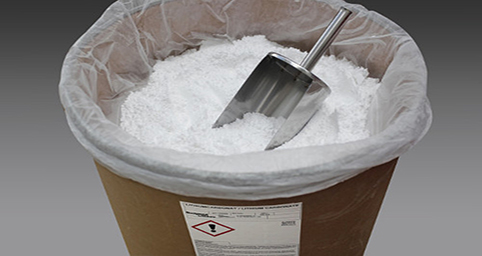
Chile nuclear watchdog weighs probe into fraud over lithium exports – documents


The internal review found “significant errors” in CCHEN’s accounting of the sales of the world’s top lithium producers Albemarle Corp and SQM (SQM_pb.SN) between 1984 and 2015, suggesting the agency at times had lost track of how much lithium was being exported and where it was going.
Nuclear watchdog CCHEN is the de-facto gatekeeper for Chile’s coveted production of the battery material that is used in electric cars, mobile phones and many other consumer goods. The South American country is now the world’s number two producer of lithium.
Albemarle’s shares sank around 4 percent on Tuesday following the Reuters report and after broker Nomura cut its target price on the stock and changed its stance to ‘neutral’ from ‘buy.’
The findings of the two-year investigation, which expands on a 2016 audit of SQM’s 2010-2015 sales, were presented to CCHEN’s executive committee in October and have yet to be reported. The agency is in the process of adopting new, more stringent oversight of the industry, including new protocols and closer enforcement of exports, the documents show.
But for more than 30 years, the report said inconsistencies and omissions riddled the spreadsheets that detail the sales of both Albemarle and SQM, according to minutes from the presentation. The initial findings prompted CCHEN executive committee members to call for a new investigation to determine just how much lithium had gone unaccounted for, the minutes show.
The investigation would look into the possibility that the errors and omissions were deliberate and part of some fraudulent scheme. It was not immediately clear, however, who the investigation might target and whether indeed it would be launched.
Lack of Clarity
CCHEN in September denied a request to triple production from Albemarle, the world’s top producer of lithium, citing, in part, uncertainty over how much lithium the company had already mined.
Albemarle declined to comment on the matter.
A spokesperson for SQM said the company had yet to review the results of the study and preferred not to comment, adding that SQM’s internal controls had detected no “irregularities” in export records.
But CCHEN’s discovery that its records of lithium exports are far from accurate could complicate the agency’s efforts to determine just how much lithium SQM and Albemarle have mined and when their quotas of the metal will be exhausted.
CCHEN did not reply to requests to comment on the status of the proposed probe into fraud, or how it could impact Albemarle or SQM.
When CCHEN executive committee members asked why the regulator had failed to properly document movements of lithium between 2011 and 2015, Mauricio Maureira, who oversees lithium exports for the agency, cited a “lack of diligence in the office of control,” according to minutes of the CCHEN executive meeting in October reviewed by Reuters.
“Unfortunately, there’s no other explanation,” he said.
Chile’s lithium industry has recently come under increasing scrutiny by various government agencies, including the country’s environmental and water authorities, who have taken steps to increase oversight of lithium production amid booming demand.
Albemarle and SQM’s Chilean operations are critical to the global supply of lithium. Together, their Chile plants produced nearly 40 percent of the world’s lithium in 2017.
Nuclear agency CCHEN has authorized lithium quotas and exports since 1979, when the military government of ex-dictator Augusto Pinochet declared lithium “strategic” because of its nuclear applications.
For years, lithium was a little-known metal supplying a niche industry. Its use in sensitive nuclear applications is now limited. But the advent of cell phones and electric vehicles powered by lithium-ion batteries has sent demand for the newly anointed “white gold” skyrocketing.


Trump weighs using $2 billion in CHIPS Act funding for critical minerals

Codelco cuts 2025 copper forecast after El Teniente mine collapse

Electra converts debt, launches $30M raise to jumpstart stalled cobalt refinery

Barrick’s Reko Diq in line for $410M ADB backing

Abcourt readies Sleeping Giant mill to pour first gold since 2014

Nevada army depot to serve as base for first US strategic minerals stockpile

SQM boosts lithium supply plans as prices flick higher

Viridis unveils 200Mt initial reserve for Brazil rare earth project

Tailings could meet much of US critical mineral demand – study

Kyrgyzstan kicks off underground gold mining at Kumtor

Kyrgyzstan kicks off underground gold mining at Kumtor

KoBold Metals granted lithium exploration rights in Congo

Freeport Indonesia to wrap up Gresik plant repairs by early September

Energy Fuels soars on Vulcan Elements partnership

Northern Dynasty sticks to proposal in battle to lift Pebble mine veto

Giustra-backed mining firm teams up with informal miners in Colombia

Critical Metals signs agreement to supply rare earth to US government-funded facility

China extends rare earth controls to imported material

Galan Lithium proceeds with $13M financing for Argentina project

Kyrgyzstan kicks off underground gold mining at Kumtor

Freeport Indonesia to wrap up Gresik plant repairs by early September

Energy Fuels soars on Vulcan Elements partnership

Northern Dynasty sticks to proposal in battle to lift Pebble mine veto

Giustra-backed mining firm teams up with informal miners in Colombia

Critical Metals signs agreement to supply rare earth to US government-funded facility

China extends rare earth controls to imported material

Galan Lithium proceeds with $13M financing for Argentina project

Silver price touches $39 as market weighs rate cut outlook

















